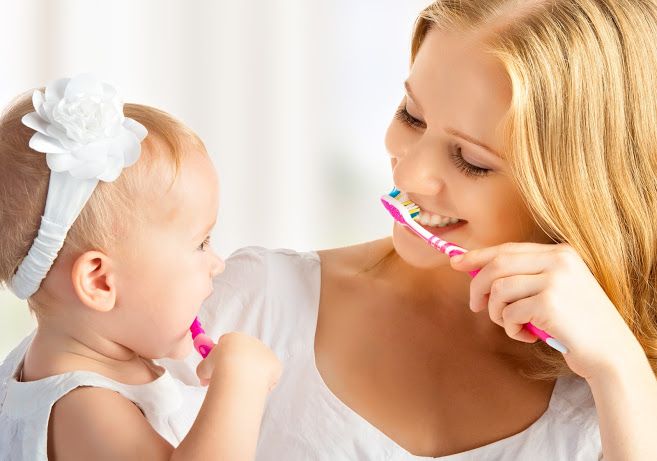
Debunking 4 Common Myths About Kids’ Oral Health
When it comes to your child’s oral health, getting them started on the right track from an early age is the best thing you can do. Being informed about oral health and good oral hygiene in children will help you to do this more effectively. Here are four examples of myths about kids’ oral health and the facts that debunk them.
Myth 1: Baby Teeth Are Less Important
Since we all lose our baby teeth eventually, there is an unfortunate misconception among many parents that baby teeth simply aren’t as important as permanent teeth. While baby teeth with cavities will eventually fall out, the bacteria that caused these cavities can affect the gums and other oral tissues. Children are susceptible to periodontal disease just like adults, but avoiding cavities in baby teeth lowers this risk.
Another reason that baby teeth are important is that they are vital to children’s development in many ways. Baby teeth help to ensure that space remains for permanent teeth to grow in straight and that the gums and jawbone are strong enough to support them. Healthy baby teeth also play a role in speech development as well as your child’s social confidence and self-esteem.
Myth 2: Fruit Juice Is Always Healthy
Most parents know that soda is one of the worst beverages for oral health. This is even true of diet soda, as its acid content can cause enamel to wear. You may consider turning to fruit juice as a tasty and healthy alternative for your child, but it is important to choose the juice you give your child carefully. Not all fruit juice is healthy, and many can even have sugar content that is comparable to soda.
The label on any juice product will tell you all you need to know about how healthy it is for your child’s teeth. Avoid products with labels such as juice blend, juice drink, or fruit punch, and instead opt for 100% fruit juice. Juices with no added sugars are the best option. Certain juices like grapefruit or orange juice are lower in sugar than other types.
Myth 3: The First Dental Visit Can Wait
Your child’s first tooth is cause for excitement, but it also means it’s time to start thinking about visiting the dentist. The American Academy of Pediatric Dentistry recommends that you take your child to their first dental visit when they get their first tooth, or no later than their first birthday. This is in contrast to the common misconception that dental visits aren’t necessary until children have a mouthful of teeth.
During your child’s first dental visit, the dentist will perform a thorough oral health examination to ensure that your child’s teeth, gums, and jaw are developing properly. This is a good time to discuss any concerns you have with your dentist and to get more information on baby bottle tooth decay and other issues. The first dental visit also serves to soothe any anxiety your child may have about the dentist’s office.
Myth 4: Cavity Susceptibility Is Genetic
Cavity susceptibility is a complex topic, and it’s natural to be concerned for your child’s oral health if you have had problems with cavities yourself. Fortunately, studies have shown that genetics have a very minor impact on the occurrence of cavities.
The body’s resistance to cavities depends heavily on the oral microbiome, or the varieties of bacteria that are present in the mouth. A child’s oral microbiome is similar to their parents’ in early life, but gradually differs as the child grows and new bacteria are introduced from the environment. The consensus among dentists is that almost all cavities are preventable with good oral hygiene habits and are unrelated to genetics.
Knowing the facts behind these common myths will help you prepare your child for a lifetime of healthy teeth and gums. For more oral health tips and comprehensive dental services for your entire family, rely on us at All About Kids Dental/All About Kids Dental!